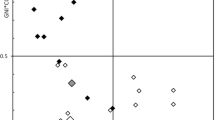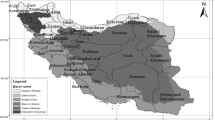Abstract
Water is a fundamental human need and key to economic development. Since the beginning of civilization, people have faced problems associated with river and freshwater sharing. To add on to the precarious situation, most of the freshwater rivers are transboundary rivers, i.e. they cross at least one political border, either a border within a nation or an international boundary. Water politics, commonly known as hydropolitics, are politics affected by the availability of water and water resources, which play an important role in transboundary water management. Hydropolitics relate to the ability of geopolitical institutions to manage shared water resources in a politically sustainable manner, i.e. without tensions or conflict between political entities. As the pressures of population and economic growth increase, water resources are under increasing stress. As the stress on water resources increases, the risks associated with the management of transboundary rivers increase exponentially given the hegemonic disparities of the riparians. This gives rise to risks of conflict while generating opportunities of cooperation which can be analysed with the help of risk-opportunity index developed using fuzzy synthetic evaluation technique proposed by Rai et al. (J Hydrol 519:1551–1559, 2014). It has been proposed to formulate a hydropolitical sustainability index (HypSI) keeping in view the circles of blue sustainability (blue indicates water in this chapter) which considers the social desirability, political legitimacy, economical viability, environmental sustainability and technical feasibility aspects of shared water resources.
Access this chapter
Tax calculation will be finalised at checkout
Purchases are for personal use only
Similar content being viewed by others
References
Azar EE (1980) The conflict and peace data bank (COPDAB) project. J Confl Resolut 24(1):143–152
Bernauer T (1997) Managing international rivers. In: Young OR (ed) Global governance: drawing insights from the environmental experience. The MIT Press, Massachusetts Institute of Technology, Cambridge, pp 155–196
Biswas AK (1999) Management of international waters: opportunities and constraints. Int J Water Resour Dev 15(4):429–441
Blaikie P, Cannon T, Davis I, Wisner B (1994) At risk: natural hazards, people’s vulnerability and disasters. Routledge, London
Bolte JP, Hulse DW, Gregory SV, Smith C (2007) Modeling biocomplexity–actors, landscapes and alternative futures. Environ Model Softw 22(5):570–579
Cascão AE, Zeitoun M (2010) Power, hegemony and critical hydropolitics. In: Transboundary water management: principles and practice. Earthscan, London, pp 27–42
Daclon CM (2007) Geopolitics of environment. A wider approach to the global challenges. Comunità Internazionale 62(4):681–692
Dinar S (2002) Water, security, conflict, and cooperation. SAIS Rev 22(2):229–253
Dombrowsky, I (2009a) Benefit sharing in transboundary water management through intra-water sector issue linkage. In: Conference report: On the water front: selections from the 2009 World Water Week in Stockholm, SIWI. pp 25–31
Dombrowsky I (2009b) Revisiting the potential for benefit sharing in the management of trans-boundary rivers. Water Policy 11(2):125–140
Draper SE (2002) Model water sharing agreements for the twenty-first century. ASCE Publications, Reston, p 166
Elhance AP (1999) Hydropolitics in the third world: conflict and cooperation in international river basins. US Institute of Peace Press, Washington, DC
Frey FW (1993) The political context of conflict and cooperation over international river basins. Water Int 18(1):54–68
Giordano MA, Wolf AT (2003) Sharing waters: Post‐Rio international water management. Nat Res Forum 27(2):163–171
Gleick PH (1993) Water and conflict: fresh water resources and international security. Int Secur 18(1):79–112
Gunderson LH, Pritchard L (2002) Resilience and the behavior of large-scale systems. Island Press, Washington, DC
Hanjra MA, Qureshi ME (2010) Global water crisis and future food security in an era of climate change. Food Policy 35(5):365–377
Homer-Dixon T (1994) Environmental scarcities and violent conflict: evidence from cases. Int Secur 19(1):5–40
Hughes Butts K (1997) The strategic importance of water. Parameters 27:65–83
IUCN (1980) World conservation strategy: living resource conservation for sustainable development. World Conservation Union, United Nations Environment Programme, Word Wide Fund for Nature, Gland
Jägerskog A, Granit J, Risberg A, Yu W (2007) Transboundary water management as a regional public good. Financing development–an example from the Nile Basin (No. 363.61 T772t). Cambridge University Press, Cambridge
James P (2015) Urban sustainability in theory and practice: circles of sustainability. Routledge, London
Johansson RC, Tsur Y, Roe TL, Doukkali R, Dinar A (2002) Pricing irrigation water: a review of theory and practice. Water Policy 4(2):173–199
Klaphake A (2005) Economic and political benefits of transboundary water cooperation. In: Proceedings of the IHP-HWRP, the value of water–different approaches in transboundary water management. Proceedings of the International Workshop, Koblenz, pp 91–99
Lasswell HD (1936) Politics: who gets what, when, how. P. Smith, New York
Lonergan S, Gustavson K, Carter B (2000) The index of human insecurity. Aviso 6:1–11
Loucks DP (1997) Quantifying trends in system sustainability. Hydrol Sci J 42(4):513–530
Nicol A, van Steenbergen F, Sunman H, Turton A, Slaymaker T, Allan JA, de Graaf M, van Harten M (2001) Transboundary water management as an international public good. Ministry of Foreign Affairs, Sweden
Rai SP, Young W (2015) Freshwater conflict and cooperation in South Asia. World Bank, Delhi
Rai SP, Sharma N, Lohani A (2014) Risk assessment for transboundary rivers using fuzzy synthetic evaluation technique. J Hydrol 519:1551–1559
Remans W (1995) Water and war. Humantäres Völkerrecht 8(1):1–14
Rogers P (1993) The value of cooperation in resolving international river basin disputes. In Proceedings of the natural resources forum. Wiley Online Library, pp 117–131
Sadoff CW, Grey D (2002) Beyond the river: the benefits of cooperation on international rivers. Water Policy 4(5):389–403
Sadoff CW, Grey D (2005) Cooperation on international rivers: a continuum for securing and sharing benefits. Water Int 30(4):420–427
Saleth RM, Dinar A (2000) Institutional changes in global water sector: trends, patterns, and implications. Water Policy 2(3):175–199
Saleth RM, Dinar A (2004) The institutional economics of water: a cross-country analysis of institutions and performance. Edward Elgar Publishing, Cheltenham
Sandoval-Solis S, McKinney DC, Loucks DP (2010) Sustainability index for water resources planning and management. J Water Resour Plan Manag 137(5):381–390
Schulz M (1995) Turkey, Syria and Iraq: a hydropolitical security complex. In Hydropolitics: conflicts over water as a development constraint. Zed Books, London. pp 91–122
Sengo DJ, Kachapila A, van der Zaag P, Mul M, Nkomo S (2005) Valuing environmental water pulses into the Incomati estuary: key to achieving equitable and sustainable utilisation of transboundary waters. Phys Chem Earth A/B/C 30(11):648–657
TFDD (2012) International river basin register. In College of earth, ocean, and atmospheric sciences. Oregon State University, Corvallis, USA
Turner B (2010) Vulnerability and resilience: coalescing or paralleling approaches for sustainability science? Glob Environ Chang 20(4):570–576
Turton A, Henwood R (2002) Hydropolitics in the developing world: a Southern African perspective. IWMI, Pretoria
UNESCO (2015) Water for a sustainable world. The United Nations World Water Development Report. UNESCO Publishing/Earthscan, 2015
Vogel C, O’Brien K (2004) Vulnerability and global environmental change: rhetoric and reality. Aviso 13:1–8
Wada Y, Bierkens MF (2014) Sustainability of global water use: past reconstruction and future projections. Environ Res Lett 9(10):104003
Waterbury J (1979) Hydropolitics of the Nile Valley. Syracuse University Press, New York. ISBN 0815621922
Wced BC (1987) Our common future. Oxford University Press, Oxford
Westing AH (1986) Global resources and international conflict: environmental factors in strategic policy and action. Oxford University Press, Oxford
Whittington D, Wu X, Sadoff C (2005) Water resources management in the Nile basin: the economic value of cooperation. Water Policy 7(3):227–252
Wolf AT (1995) Hydropolitics along the Jordan River; scarce water and its impact on the Arab-Israeli conflict. United Nations University Press, New York
Wolf AT (1998) Conflict and cooperation along international waterways. Water Policy 1(2):251–265
Wolf AT (1999) The transboundary freshwater dispute database project. Water Int 24(2):160–163
Wolf AT (2002) Conflict prevention and resolution in water systems. In: Howe CW (ed) The management of water resources series. Edward Elgar Publishing Ltd, Cheltenham
Wolf A (2006) Hydropolitical vulnerability and resilience along international waters (five volumes: Africa, Latin America, North America, Asia, Europe). UN Environment Programme, Nairobi, p 2007
Wolf AT, Natharius JA, Danielson JJ, Ward BS, Pender JK (1999) International river basins of the world. Int J Water Resour Dev 15(4):387–427
Wolf AT, Yoffe SB, Giordano M (2003) International waters: identifying basins at risk. Water Policy 5(1):29–60
Wolf AT, Kramer A, Carius A, Dabelko GD (2005) Managing water conflict and cooperation. In: State of the World 2005: redefining global security. The Worldwatch Institute, Washington, DC, pp 80–95
World Economic Forum (2015) Global Risk 2015. Geneva: World Economic Forum
Yoffe S, Larson K (2002) Basins at risk: water event database methodology. In: Yoffe SB (ed) Basins at risk: conflict and cooperation over international freshwater resources. Oregon State University, Corvallis, USA
Zadeh LA (1968) Fuzzy algorithms. Inf Control 12(2):94–102
Zeitoun M, Warner J (2006) Hydro-hegemony-a framework for analysis of trans-boundary water conflicts. Water Policy 8(5):435–460
Author information
Authors and Affiliations
Corresponding author
Editor information
Editors and Affiliations
Rights and permissions
Copyright information
© 2017 Springer Science+Business Media Singapore
About this chapter
Cite this chapter
Rai, S.P., Wolf, A.T., Sharma, N., Tiwari, H. (2017). Hydropolitics in Transboundary Water Conflict and Cooperation. In: Sharma, N. (eds) River System Analysis and Management . Springer, Singapore. https://doi.org/10.1007/978-981-10-1472-7_19
Download citation
DOI: https://doi.org/10.1007/978-981-10-1472-7_19
Published:
Publisher Name: Springer, Singapore
Print ISBN: 978-981-10-1471-0
Online ISBN: 978-981-10-1472-7
eBook Packages: Earth and Environmental ScienceEarth and Environmental Science (R0)




